Text
For Fun or For Funds?
or " Are gaming communities becoming less about play and more about monetisation?"

A Personal Note
Entering my early 20s, I reflect on my early days of being exposed to the idea of gaming, I remember watching Disney Channel and during their breaks, they advertised the Disney Channel website where you could play flash games based on the cartoons being aired. I asked my father about it, and he beckoned me to the study room where our old family computer was. He opened up Internet Explorer and hopped on the Disney Channel website. That was the beginning of my personal relationship with gaming. Then it led to my father buying me a PlayStation 2, a major turning point as it allowed me to experience real gaming on a dedicated platform. Back then, gaming was simple as its main purpose was escapism, where you would come home from school or work, hop on your computer or console and forget about the day’s worries for a while. There was no such thing as subscriptions, content locked behind a paywall, or using real money to earn you an advantage over your opponents or to enhance your experience in general. And casual gaming was what it meant on the tin; it was a casual activity where you did not put much thought into it and was merely something to pass the time. Times have changed, and the only time you see gaming mentioned in the mainstream is of how much money was won by an Esports team and how famous you can get from gaming competitively and I personally can make a case that “Mammon” has even entered the realm casual gaming.

Gaming communities: A new cash cow?
The first culprit of the monetisation of gaming communities is the rise of professional gaming. More and more you see games that are tailormade to be played at tournaments and you’d rather watch other people play and win millions rather than to play the game yourself. The rise is popularity for games such as CS:GO, Fortnite, League of Legends, and most recently Valorant where you specifically train to play in Esports tournaments in the hopes to win money places profit over fun. It is not to play competitively, it is stressful, and the desire to win big pushes some to even abuse substances to keep themselves awake to get more hours of training just to hone their skills just for that littlest edge over the competition because the dollar sign is such a powerful drug in of itself. One just needs to look at how lucrative this new burgeoning market can be as in 2021, the global esports revenues totalled up to over $1.6 billion dollars, and looking at the geographical information, over half of that was generated by China and North America. I believe a lot of this monetisation and commercialisation of gaming communities comes from coverage of gaming by the mainstream media. Before the advent of esports as we know it, mainstream media painted gaming communities as sort of men who refused to grow up and continued to play with toys instead of spending time “normally” like watching television or taking more “conventional” interests like being a sports fan or going to your favourite musician’s concert. Instead, these gamers keep up to date with the latest gaming news. How odd! Now that events like the COVID-19 pandemic have changed the world’s attitude to gaming communities and what they do, suddenly the market has experienced unprecedented growth in the past 3 years. Now we see even governments paying close attention to what happens among gamers, seeing it as an opportunity for youths to specialise in to bring pride to their state, being recognised as a legitimate sport alongside field and track. The commercialisation of gaming has made the communities appear as mere customers to investors and even gaming developers. They saw how much money they can make, and now their as bold as ever in throwing money onto the growing money pile that is the gaming market. I remember a time when my mother scolded me for playing video games, asking sarcastically how much money I make. Now she sends me headlines about an esports team winning millions in a recent tournament. Funny how opinions can change so sharply. Now we even see the rise of film adaptations of video games, where Hollywood executives who have never held a gaming controller decide to make a film cash grab by taking advantage of the nostalgia of gamers they looked down upon decades ago.

Still for fun?
In conclusion, the statement that gaming communities are becoming less about play and more about monetisation can be quite interesting to answer, and to give it an answer, I would give a simple yes. Gaming communities will feel the changes in the environment that they hold so dear. They would be lying if they say they had not seen the massive cashflow into and around the games they love, and for some, it’s a given due to the nature of the games they build communities around. The more honest gamers will tell you they know the corporations who invest in the games see the communities as generic customers and a source of revenue, and the companies that churn out their games have become bold in their attempts to maximise their profits, sometimes at the cost of the soul and effort that used to be put into creating cult classics like we saw in the days of yore of gaming.

References
5 notes
·
View notes
Text
Big Data VS The Little Guys
or "Will decentralised networks become a bigger, more mainstream part of the Internet, thus emphasising crowdsourced content and information?"

Earlier this year, I became an admin for a Discord server, so I was expected to engage with its members. One person in the server stood out, he explained to me that he runs an online marketing firm in Chicago, then he said he wanted to show me something. He told me to search up a Wikipedia article, telling me to look at the image file at the top on the article. I looked at the user who uploaded that image file and I was surprised to find that it was he that created and uploaded that image onto Wikipedia, and it made sense because of his online marketing background. No one asked him to devote his time and effort to do that, but maybe out of a sense of innate duty or maybe he had time to spare, he decided to create that image which is now associated entirely with that topic. The Internet is a what it says on the tin, an interconnected network. Who could have guessed? The Internet consists of a functionally infinite number of points weaved together with hyperlinks and cross-references, forged from the combined effort of countless users who add on to the vast body of work that is the online experience. But who is responsible for it being like the way it is? It might seem contradictory to the title of this blog entry, but I want to suggest that the Internet in its modern recognisable form is the way it is today because of the success of decentralised networks in the past and present, which had always depended on crowdsourced content and information.
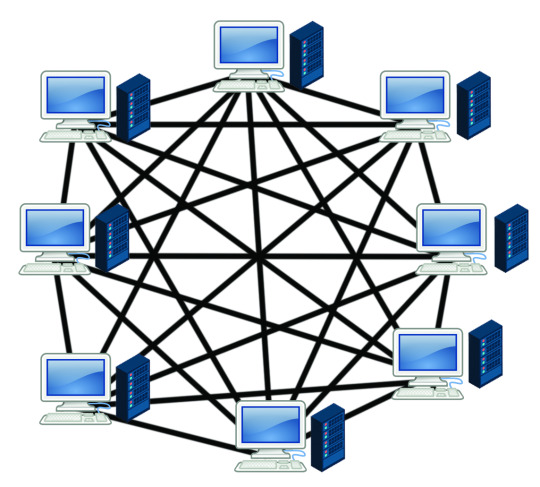
A Decentralised Interconnected Network?
In the advent of what really became the Internet occurred between the late 90s and early 2000s where we can observe the phenomenon of textboards where people would have discussions with other users, and blogs where users would write about any subject under the digital sun. This early unregulated “laissez-faire” approach to the growth of the Internet meant that individual communities and their users would be the ones churning out content with no fear of a central regulatory authority like we see today that could impose rules that today seem part and parcel of the Internet but would retrospectively seem almost draconian in nature. This was especially true after the Dot-Com Bubble burst in the early 2000s when created a massive evolutionary bottle neck in terms of the countless tech companies going bankrupt, where 52% of all internet-centred firms when bust when the stock market crashed. Imagine if today, half of the entire Internet just disappeared. The Dot-Com crash put many people off investing in anything related to the internet for many years and would only pick back up in the later 2000s with the rise of firms like Alphabet Incorporated, Amazon Incorporated, and Facebook Incorporated, now of course Meta Platforms Incorporated. In those dark years after the stock market crashed, it was up to the users online to fill in the vacuum that was left with a sort of Mad Max style approach where it was up for grabs due to the lack of any attempt to monopolise or centralise the web by corporations or governments. In the new algorithmic medium that is the Internet, collective intelligence and combined creative energy emerges bottom-up from the multitude of actual human knowledge, in this case, the Internet is built in a way that naturally facilitates decentralised networks growing and being an integral part of the Internet.
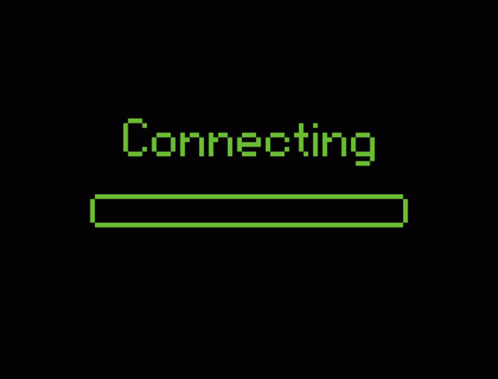
To conclude, the question of whether decentralised networks could a bigger force and become a more mainstream part of the Internet is really a sort of nonquestion as decentralised networks is practically the backbone of the Internet. Going back to the story I told in the beginning, he was just someone with an idea and the means to put his thoughts into a reality. The Internet is a summation of the concept of the wisdom of the crowds, and the idea of crowdsourced content and information created by the users themselves is inherent to the spirit of the Internet. This interestingly enough makes the decentralised networks on the Internet ideally the closest things we can get to perfect democracies where it is the users who are in charge of the content they produce, who is allowed into their circles, and how they wish to present themselves to the greater ecosystem.

References
0 notes
Text
2020 or 1984?
or "Are public health campaigns on social media more of a one-way communication than conversation?"
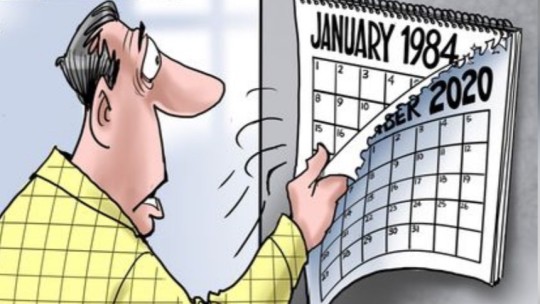
Government: Infallible broker of truth?
In March 2020, the then Prime Minister of New Zealand, Jacinda Ardern said in a press conference concerning information relating to the COVID-19 pandemic that the government "will continue to be your single source of truth", going on to say that "unless you hear it from us, it is not the truth". In its full context, Ardern's statement was focused on the topic of addressing the many examples of pandemic disinformation at that time, which in of itself is a good thing to do. But that did not dampen the exact words she used, words that were eerily similar to the tone of George Orwell's best-known work, 1984. In "1984", the story follows a man living under a totalitarian state and his main job is to rewrite history in the Ministry of Truth in order to fit the state's narrative. Scary stuff indeed. It seemed like government and social media are at odds with one another on who is the arbiter of truth at such a key point in the world history. Now, this raises an interesting question of whether health campaigns on social media are more of a one-way street in terms of communication rather than a two-way conversation between us and the powers at be, especially if the government felt as if such flow of information was so important.

Big Brother VS Random people on the Internet
You don’t need me to tell you that there has been a massive increase of social media use in the past decade resulting from the exponential increase of mobile device ownership, ever improving connection speeds, and greater network coverage across the world. A lot of varied information can now be accessed through the medium of the internet which you can now tap into without even using a computer, as that is now in your pocket. The great potential to disseminate information on a massive scale has not been overlooked by influencers, big businesses, and now, governments. One aspect that has seen this in practice by authorities was in the realm of public health. First, we need to zoom out and look at why the realm of social media was so vital the spreading of essential pandemic statistics and information. A study conducted in 2011 found that quarter of all internet users watched an online video concerning health or medical issues. It also found that 11% had posted information about medical matters. Mind you, this study was conducted more than a decade ago, just imagine how these numbers have increased through the years. I think I’ve made myself clear that social media and the internet as a whole has become a major player in facilitating and sustaining public discussions, especially on health matters.

And nothing can sum its importance up more than to look at the COVID-19 pandemic that rocked our world. We had 24-hour updates of the latest numbers on infections, deaths, and recoveries at our fingertips. Then we would give our opinions those statistics, posting the numbers on our social media and speaking our minds, whether to praise the efforts of the health services in the event of a drop in cases, or to blame to poor handling of the government whenever cases spiked after a loosening of restrictions. It was interesting seeing public opinion wax and waning in the court of public opinion. And of course, there was the occasional spurt of sensational information, whether unintentional misinformation or deliberate disinformation. Regardless of intent, this posed a threat to government health services could not afford the additional strain of dealing with not being trusted by its patients because of a dubious claim they happen to have read on Facebook. So, governments had to come out with information which had been passed through the brightest health minds in the country and then make that information available for the public, whether on official government websites, health applications, or daily news press conferences. In short, governments had to compete with the eventuality of dubious or false information being spread online. It was a race to see who had the monopoly of people’s attention.

Now, how do I conclude? Seeing the whole situation in context now makes me see that what Jacinda Ardern said at that press conference. Conspiracy theorists would point the finer at the Kiwi PM and shout “1984”. But personally, it seemed that this was more of the case of a knee jerk response by New Zealand PM on the issue of online information related to the pandemic at the time and to assure the public that they had it under control.
References
1 note
·
View note
Text
彡✎ Unpacking Politics, One Meme at a Time
(Do memes (as it is popular in Malaysian politics) provide a useful way of understanding politics?)
Politics: the only arena where you'll find more plot twists, backstabbing, and unexpected surprises than a season finale of your favorite TV show.

We get it – politics can sometimes feel like a maze of jargon and complex issues. However, with the rise of meme culture and its integration into politics, could memes be used to further understand politics and its complexity? (probably).
Behind the Laughs
Before answering the main question, let me hit y'all with some nerd facts about how memes came about. A meme is a cultural informational unit that spreads by imitation. The term, which comes from the Greek word mimema (meaning "imitated"), was coined by a British biologist named Richard Dawkins in 1976 from his work titled "The Selfish Gene" (Rogers 2023). Memes come in a variety of format that ranges from videos to still images.
From LOL to Legislation
In today's day and age of the Internet, memes can be found on all sorts of social media platforms that we use on a daily basis. Whether it be viral videos or yet another funny cat or dog picture like the doge meme. Nowadays, there seems to be an ongoing trend of memes being used in politics. I'm not particularly sure how it is being used, but most of the memes I see about politics are just to poke fun at a specific person or political party.
Now for the million-dollar (or in this case ringgit) question, how did memes suddenly become a thing in the political world? The earliest instance of memes and politics I could find is from the year 2000 during a presidential debate in the United States about then-candidate George W. Bush where he mispronounced the word "internet" as "internets." Four years later, he made the same mistake during a debate with John Kerry when he said, "I hear here’s rumors on the, uh, internets that we’re going to have a draft". After the whole conundrum, the response from netizens was eventful. Thus, making Bush one of the first few political internet memes (Klein 2019).

It seems that after George W. Bush became a trending meme in politics in the United States, I guess you could say he sort of paved the way for birthing memes in politics as we know it today. As far as I know, there are a lot of memes about our politics here in Malaysia that I've come across and it gets pretty entertaining considering how our politics here are.
Meme-laysia
As someone that currently lives in Malaysia, I would say that there are a handful of memes that circulates throughout social media when it is nearing elections or when someone that is part of a political party (or one of our ministers) screws up yet again. The political scene here is quite eventful, to say the least, but that does not mean we cannot laugh about it.
One of the most popular political memes in Malaysia is during 2021 when our then Prime Minister of Malaysia, Muhyiddin Yassin suddenly resigned from his position after only being the Prime Minister for one-and-a-half years. As good of a plot twist as this is, Malaysians took to social media to express their confusion and reaction to this news (Lee 2021).
Here is one of the example:

Upon resigning as Prime Minister, Muhyiddin Yassin will assume the role of interim Prime Minister until a new leader, who commands the majority, is identified (Lee 2021).
Humor and Power
Phew. We're finally getting to the most anticipated part. Do memes provide a useful way of understanding politics? My answer to that is, definitely. Based on research conducted by Kasirye (2019), it is found that political memes do have an effect on providing information about politics.
The study also reveals that political parties employ memes to promote, oppose, and criticize various political issues among the populace. Since the majority of messages are created by political parties and actors to further their objectives, memes are spread through social media to reach the targeted political groups.
Due to memes having a visual nature and their ability to grab people's attention, memes are a good foundation to start understanding politics. Thus, memes are a great method for political engagement that appeals to people's cognitive and extrasensory faculties in order to interact with them and shape their opinions. Humor and sarcasm, on the other hand, are used as persuasive strategies in this awareness-raising technique (Kasirye 2019, p. 51).

Final Thoughts and Prayers
Overall, I do think that memes play a part in politics in terms of understanding what is going on or providing useful information. Memes are funny and people like memes due to the fact that they can be on different social media platforms, whether it be in video or picture format.
References
Kasirye, F 2019, 'THE EFFECTIVENESS OF POLITICAL MEMES AS A FORM OF POLITICAL PARTICIPATION AMONGST MILLENNIALS IN UGANDA', Journal of Education and Social Sciences, vol. 13, issue 1, pp. 50 - 51, viewed 8 October 2023, <https://www.jesoc.com/wp-content/uploads/2019/08/KC13_032.pdf>.
Klein, O 2019, The evolution of political internet memes, Kennedy School Review, viewed 8 October 2023, <https://ksr.hkspublications.org/2019/03/11/the-evolution-of-political-internet-memes/>.
Lee, J 2021, Confused Malaysians make sense of country's political crisis through memes, Mashable, viewed 8 October 2023, <https://sea.mashable.com/culture/17175/confused-malaysians-make-sense-of-countrys-political-crisis-through-memes>.
Rogers, K n.d., meme, Britannica, viewed 7 October 2023, <https://www.britannica.com/topic/meme>.
4 notes
·
View notes
Text
Did Boris Win Over the Internet?
or "Did Boris Johnson and the Conservatives win the 2019 UK general election using YouTube?"

Setting the Political Stage
Odd title, I agree. But I believe it was the only way to describe what occured in the 2019 UK General election that saw Boris Johnson and his Conservative Party win a landslide victory in the midst of low approval ratings and the hot potato that was Brexit.
To give a brief rundown of what happened, the official Conservative Party YouTube channel posted a series of videos which consisted of election adverts that broke the stereotype of the corporate style often used by politicians. Eight videos were posted in the style of popular internet trends ranging from Q&As, parodies, vlogs, and electronic music, things that would not normally be associated with a ruling party of a major world power.
The Conservatives, also known the Tories, surpassed everyone's expectations and won an outright victory in the polls. His party saw over 48 new seats in parliament and secured the popular vote by over 3 million votes. The Labour Party, the UK's main opposition party, suffered such a major defeat that Labour leader Jeremy Corbyn, stepped down as Labour party leader.
So, how did Boris pull it off? How did one of the most controversial prime ministers in the history of UK politics win a landslide victory? I would like to propose the idea that his bizarre use of YouTube, whether directly or indirectly, helped him secure his mandate.

Understanding Boris
For almost two decades, Johnson has distinguished himself as the "odd man out" in mainstream British media and politics. Purnell (2011) describes Boris' educational background and it is quite remarkable, being an Eton and Oxford graduate, and former president of the prestigious Oxford Union where he initially developed his eccentric persona that we know today.
His early career consisted of being a journalist, being a political correspondent for The Daily Telegraph and later editor of The Spectator. During his time at the Telegraph, he made a film for BBC Newsnight in 1998 about supermarkets while shopping for groceries himself. He was launched into the mainstream when he was elected as Mayor of London in 2008. And during the administration of Prime Minister Theresa May between 2016 and 2019, Boris served as Foreign Secretary, adding another rung to his ladder to the top.
And in July 2019, Boris reached the zenith of any British politician and became prime minister. He inherited a hung parliament, meaning his party lacked a majority in the House of Commons. This made it difficult for him to pass any legislation, let alone the necessary legislation to secure Brexit. Therefore he took a gamble and called for a general election to be held in December. The situation did not seem to favour the Tories in the slightest and most expected them to be voted out of government as long as Boris was the face of the Conservatives. Now we reach the meat of the matter, the YouTube videos.

The YouTube Campaign
Beginning from 13 November, the Tory Party YouTube channel started posting election adverts that were styled more akin to popular entertainment oriented videos usually seen from WIRED. The first video of this style posted on 13 November was titled "12 Questions to Boris Johnson" and was structured like an impromptu and informal Q&A with Boris during his tea break at the Conservative Party office. He portrays himself as a just another normal person at the office as he asnwers questions about Brexit and other pressing election matters.
The second video, uploaded on 26 November, was not like any other as it was a music video. Titled "lofi boriswave beats to relax/get brexit done to", the video is more than an hour long and just consists of a picture of Boris on a train and a music track of lofi beats with excerpts from Boris' speeches. The speeches cover topics that range from getting Brexit done, increase funding for health services, and increased police funding.
The subsequent videos include Boris' honest opinions where he vlogs himself answering questions about government policies, a Love Actually parody in which he recreates a scene from that film but inserts his campaign promises into the scene, and finally there is Gridlock Vs Tractor where Boris drives a tractor and crashes through a wall to symbolise the breakthrough in Brexit negotiations.

Hits to Votes?
Did Boris' gamble with the YouTube adverts lead to him earning the mandate and winning a landslide? It is indeed the hot question on everyone's mind who reads this. Looking at the numbers, we can see that cumulative views of all five videos add up to the over 3.2 million views, with the Boriswave video making up the bulk of the views at 42.4%. According to the BBC (2019), the Tories won the popular vote overall with 13.9 million votes while Labour got 10.2 million, with a difference of 3.6 million votes. Though those numbers might be comparable, taking into account that someone watching the video could have shared his or her screen with a friend or two, thus influence their voting preference.
The YouTube adverts were certainly eye catchers during the election campaign and did make headlines, giving Boris more screentime and getting more people to talk abut him. The thing about the videos is that they are exactly something that Boris would definitely agree to be involved in its making as it aligns with his eccentric and unorthodox methods of gaining publicity. Now I have to be frank when I say on a more serious note that it is very unlikely that the YouTube videos alone helped with the electoral success of the Conservatives. The 2019 general election centred on complex socio-political issue that plagued UK politics at the time which included the UK's referendum to leave the European Union known as Brexit, funding of the National Health Service and health workers' salaries, and overall confidence voters have in the government. People were generally more concerned with how the aforementioned the issues would be addressed by Boris' administration rather than his social media gimmicks.
Therefore, the answer to the question whether or not Boris successfully courted his internet audience is unlikely. Even if he gained new supporters through his YouTube videos, his most recent scandals and controversies would have put people off being potential Conservative voters. And even if the answer is no, it has been an enlightening discussion on how Boris sealed his persona online as the "odd man out" in British politics. This might be a disappointing conclusion to our discussion, but it is incredibly fascinating topic to delve into and ask these questions on how politics and internet culture converge.

References
Purnell, S 2011, Just Boris: The Irresistible Rise of a Political Celebrity, Aurum Press, London
Gimson, A 2012, Boris: The Rise of Boris Johnson, Simon & Schuster, New York
youtube
4 notes
·
View notes
Text
Blogging in a TLDR World
or "Is blogging still relevant in the age of TikToks and Instagram?"
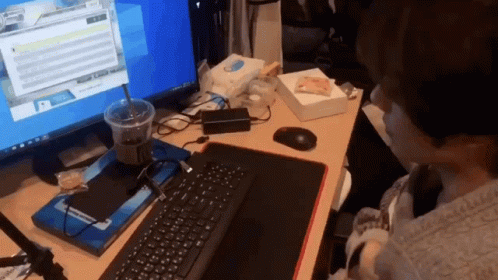
In the history of the internet, blogging has its special place in the web of content available to browse that is functionally endless. Though blogging as a phenomenon seems to have tapered off in terms of readership, Walker-Ford (2017) found that 77% of internet users today report to still read blogs often. W3Techs (2023) found that WordPress, which is a core component in most blogging sites, still powers almost half of all the internet. These general stats show that blogging, though not as ubiquitous of a trend in the modern psyche, has left a massive mark on content creation. Now the question arises about the nature of blogging as its own distinctive brand of content creation.

But first, let us set up some parameters for our discussion. What exactly is a blog? As defined by Harcup (2014), the term "blog" itself is an abbreviation for "web log", an online journal that usually displays posts chronologically and allows readers to leave comments. Blogging, therefore, is the writing and posting of these blog entries.
Now, let me first clarify the title above, "Blogging in a TLDR World". With the rise and rise of video sharing social networking services like TikTok and Instagram, information relayed using Instagram's reels feature or TikTok's format of brief videos that last less than one minute create an expectation from users that content is compressed and simplified into a somewhat commoditised version of general knowledge sharing. The briefness of each post leaves no room for lengthy academic discussion and forces creators to sum up an entire story into a short time span. In modern internet language, this phenomenon of summing things up rather than giving a lengthy explanation is "TLDR", an abbreviation meaning "Too long didn't read". It implies that the reader does not have time to read a full text and prefers a shortened version. I see this as symptomatic of the modern lifestyle so ubiquitous today that we're just too bloody busy with work or study that we're unable to take more than 10 minutes out of their daily schedule to read a relatively lengthy article.

From a certain perspective, one can see somewhat of an interesting correlation between today's TLDR culture of wanting quick and readily available information dumped on you makes the case for social constructivism. Briefly, social constructivism as defined by Blackburn (2016) is that technology and how it develops is a result of societal circumstances where problems require solutions at the time. How this connect back to the rise of TikTok and Instagram and the relevance of blogging is to connect the ubiquitous fast-paced modern life with the simple short video format synonymous with these social media sites. Though you can disagree with me on that observation, I believe it is crucial to look at it objectively and consider that correlation and its causation.

Now, what are my thoughts on blogging's place in a world where TikTok and Instagram seem to reign supreme? As stated earlier, the latest statistics show that blogging, though out of the limelight, is still a considerable chunk of the internet and the engineering that blogging required to function has left a massive impact on countless websites and their formats. There are still countless blogs floating around the internet, as Chakarov (2023) reports that there are around 600 million blogs, taking up more than a third of all websites ever published. And on a personal note, I myself am quite fond of the format of classic blogging as it through blogging that many people had their first exposure to the internet as a whole and it has influenced other important internet cultural icons like Youtube. There is a sense of nostalgia looking through blogs posts from the not-so distant past of the internet and I feel as if we should cherish it.
From the statistics, blogging is still very much alive, whether we like it or not. So to answer the question "is blogging still relevant in the age of TikToks and Instagram?", it would be a confident "yes" from me.
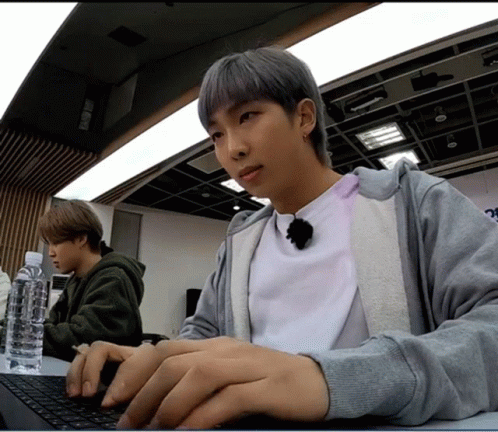
References
Blackburn, S 2016, A Dictionary of Philosophy, Oxford University Press, Oxford
Chin, B 2023, 'Week 2: Orality, Writing and the Influence of the Printing Press', MDA10006 Innovation Culture: Perspectives on the Science and Technology, Learning materials via Canvas, Swinburne University of Technology, 11 September, viewed 29 September 2023.
Harcup, T 2014, A Dictionary of Journalism, Oxford University Press, Oxford
7 notes
·
View notes
Text
Welcome, one and all to my blog!
Tis' an exciting thing to see something come to life and anticipated its path to maturation and to see it thrive.
Grab your popcorn, you're gonna love it.
The pfp is an inside joke, you'll understand if you know my face 😉
1 note
·
View note